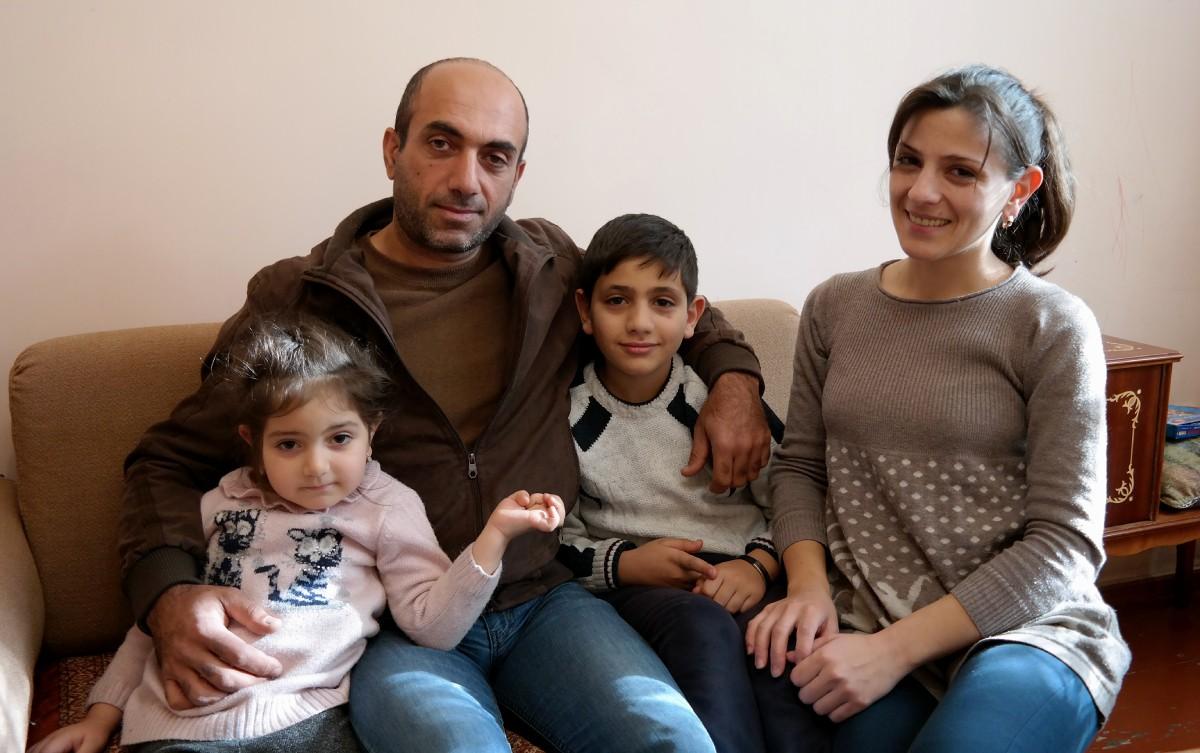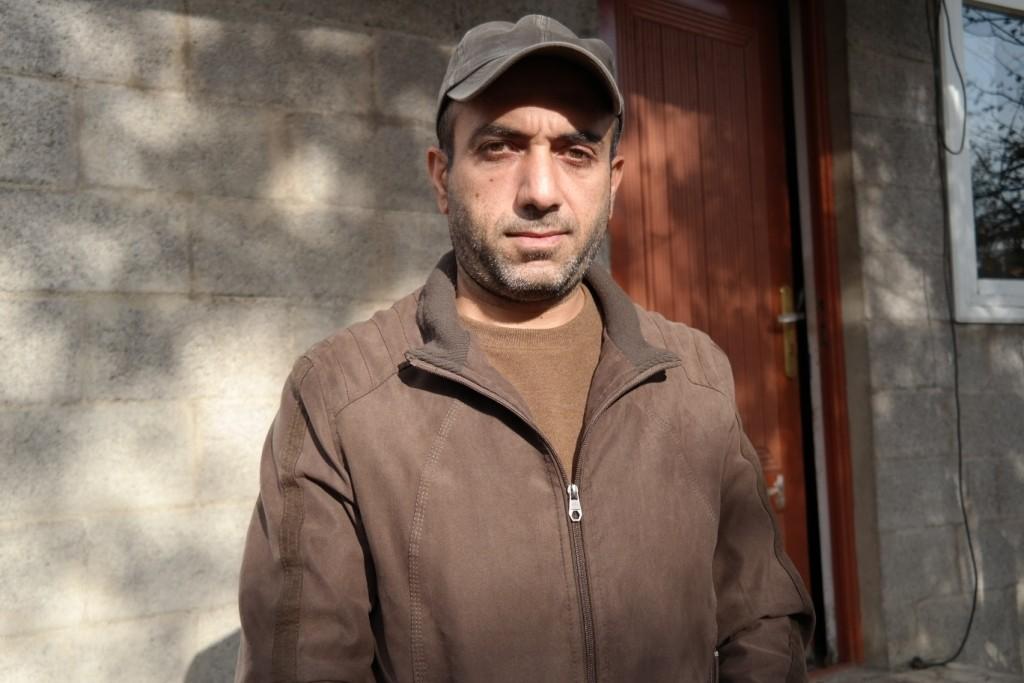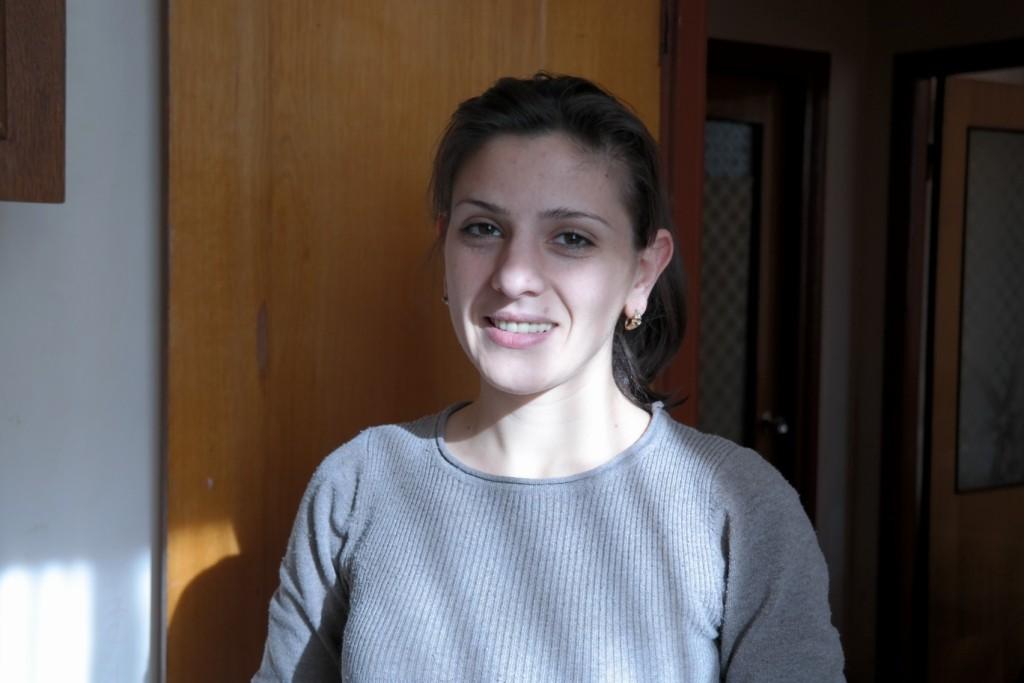
The Khandoyans: From Gyumri to Kashatagh and Back Again
The Khandoyans are just one of the families who’ve been displaced by the recent Artsakh war.
They and their two children lived in Kumayri, a village in Artsakh’s Kashatagh District. It was recently handed over to Azerbaijan according to the November 9 ceasefire.
The family, however, has roots in Gyumri, Armenia’s second largest city. Forty-year-old Artavazd and his wife Lusineh were born and raised there.
Life was difficult in Gyumri after the 1988 earthquake struck.
The family soon decided to move to Artsakh. Samvel Khandoyan, Artavazd’s father, founded the village of Kumayri, in Artsakh’s newly liberated Kashatagh region. He also served as the village’s first mayor. (Kumayri is the ancient Armenian name of Gyumri.)
The family would also face an equally difficult life in Artsakh.
"My father used to work overseas to make a living. The decision to go to Artsakh, in my opinion, was based on the idea of living off the land, of keeping the family intact. I was studying at the institute’s radio engineering department at the time. After graduating, I was conscripted into the army at the Kashatagh military commissariat. After my discharge, I attended university in Gyumri. My wife graduated from the Gyumri Academy of Fine Arts. When we got married, she was a student. I waited for her to graduate and we moved to Kumayri.”
The family has lived, raised children, and worked in Artsakh for the past twenty-three years. They farmed the land, raised livestock.
Artavazd taught social sciences in Karotan village, Lusineh taught fine arts and ecology at the Pakahan village school.
"It is very difficult to lose what you’ve created for so many years in a few hours," says 32-year-old Lusineh Malkhasyan. “You don’t know your exact status. We could not take the animals or the cars. We only took the documents and some clothes for the children. That is, nothing material that we could sell.”
Artavazd waves his hand.
"No matter. We’ll create anew,” he says. But there’s a degree of concern in his voice.
"If it had to be this way, if they had to give the land in the end, at least they should have warned people not to invest so much." Artavazd is silent for a moment, then continues.
"I left behind $150,000 worth of investments. There’s a one-hectare garden, pomegranate trees, sixty head of cattle, a shop, a renovated house. All that was left to the Turks. We have put all our hard work into the economy, to the last penny. We created, developed, and now are left empty-handed.”
Artavazd says by the time he returned from his army post, the other village families had packed their belongings and left.
“Only those families whose menfolk didn’t man the village defenses like Artavazd were able to move their belongings in time. One villager was killed and two are missing. None of the houses were burnt. They’re waiting for the Turks,” says Artavazd.
Kumayri, located on the Vorotan-Kovsakan, (Kubatlu-Zangelan) road, was a village of twenty-five households.
Blessed with a mild climate and fertile land, it was great for farming and cattle breeding. Some of the village’s 105 residents also hailed from Gyumri, Others moved there from Goris and Kapan, in Armenia’s Syunik Province.
Artavazd took part in the April 2016 “Four Day War” and was awarded the Medal of Courage.
"I did not hesitate for a second about manning the defenses. I could have stayed behind because I served as the village mayor. But I left with some of the menfolk. Those who did not want to go stayed in the village. Until the last second, I believed that we would win. That's why I left the family in the village for so long.”
Lusineh says the children were evacuated from the village earlier, but the rest of the family remained.
"It was October 16. They called and said that there were strangers in the area. Ten minutes later we had packed up and left.”
The family returned to Gyumri and were put up at Lusineh’s father’s house.
They’ve been living in a rented trailer (tnak) for the past two weeks. The owner has given the family a grace period for paying the rent, but it won’t last forever. The landlord lives in Yerevan, in a rented apartment.
The Khandoyans face an uncertain future. Artavazd needs to find work and the family’s legal status is unclear. What assistance is the government in Yerevan planning to provide the Khandoyans and others forced to flee their homes in Artsakh?
Eleven-year-old Samvel is already taking online school lessons. Lusineh is still deciding whether to send four-year-old Melineh to kindergarten.
"We still cannot adapt to our new reality," admits Lusineh. “We just praise God that nothing happened to Arto. He came back to us.”
 Videos
Videos Photos
Photos


Write a comment